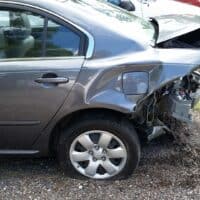Evidence Needed After a Car Accident

Serious injuries, like those stemming from a particularly traumatic automobile accident, can cause considerable stress in your life. No one should have to worry about their financial situation during times like these. If a settlement cannot be reached, filing a personal injury lawsuit may be the best way to recoup the money lost due to your condition – and lawsuits require evidence. A local personal injury attorney can guide you through the evidence-gathering process following an accident. However, everyone should understand what is necessary to gather after a car accident to represent themselves in the best way possible.
Evidence Needed For A Personal Injury Case
Car accidents are the most common reason behind personal injury lawsuits. Every case is different; some circumstances may rely on certain types of evidence over others. Still, the basic types of necessary proof are typically the same. These include:
- Statements from any participants in the accident, i.e., the victim, the motorist responsible for the accident, and any passengers that may have been involved.
- Medical bills, reports, and documentation regarding prognosis and treatment.
- Statements from bystanders who may have witnessed the accident.
- Physical evidence and video/photo proof from traffic cameras or witnesses.
- Police or EMT reports from the scene.
Statements – As soon as you can, create a written or recorded version of events that can be used as evidence in the future. While personal accounts of the situation cannot be 100% relied upon, a statement given immediately following an accident is given more weight because your memory will never be more precise than at that time. This also protects you from claims that your story changed down the road when you learned of the amount of money you could win in a lawsuit. If the other party wishes to give a statement to your attorney, you can use this as evidence of their culpability expressed at the time of the accident itself.
Medical Information – Always keep relevant information pertaining to medical bills and procedures organized or other treatments obtained. Settlement amounts often rely on the financial burden placed on you following the accident. A paper trail of the exact figures will help the judge or jury understand precisely how much compensation you deserve.
Even if they manifest weeks or months after the accident, take note of new aches or pains that spring up. These could be lingering issues that went unaddressed or dormant immediately following the accident. You can add them to the list of medical bills if your physician believes them to be tied to the accident injury.
Video/Photo Proof and Police Reports – Video proof can come from driver dashcams, traffic cameras or surveillance cameras from the area. Your attorney can request this information from the police or local businesses and use it to build your case. Any information the police found during their investigation, such as statements they received from the other party, may also be helpful. If you can safely take photos after an accident, document anything from the scene that may help later on – such as the position of the cars, skid marks on the road, missing or obscured traffic signs, or wet pavement conditions.
Your Attorney Knows What You Need
One of the best reasons to call a personal injury attorney as soon as possible is to ensure that you preserve the evidence you may need for a successful settlement or case. There may be other evidence to gather specific to your case’s facts. Speaking with an experienced personal injury attorney will help you know exactly what should be documented and saved.
There is no need to navigate the insurance or legal process alone. If you are suffering from an injury caused by another negligent party, contact the experts at Hale Law today to discuss your case for free. Remember, you pay nothing unless we win.
